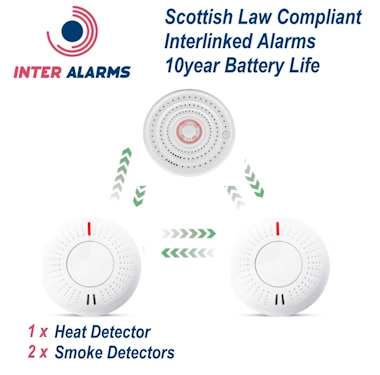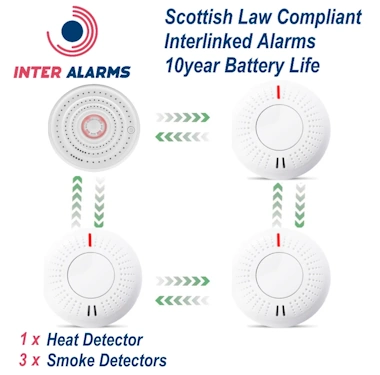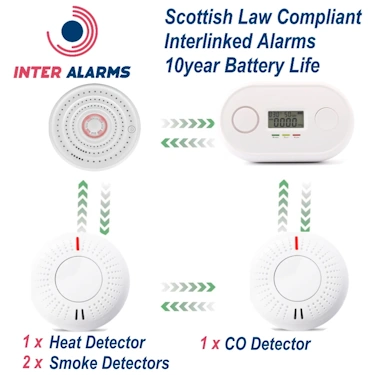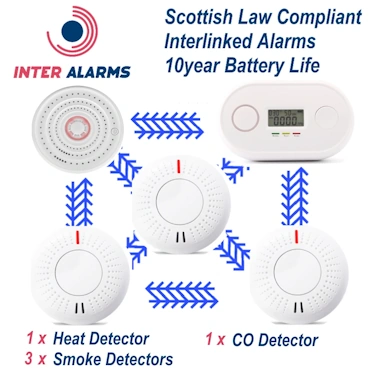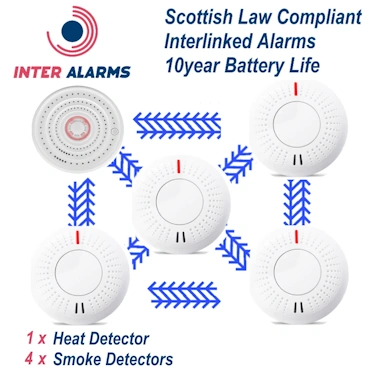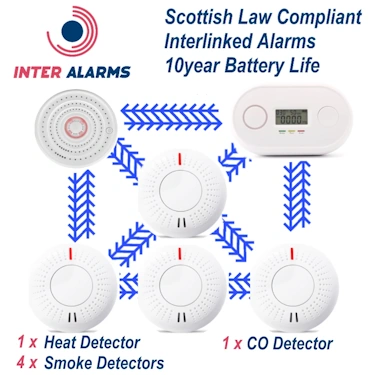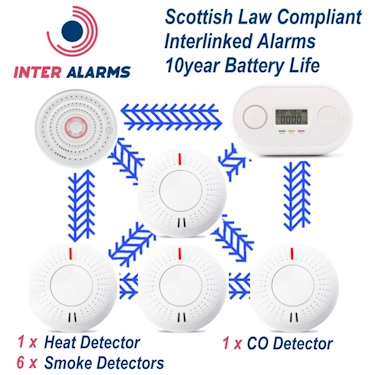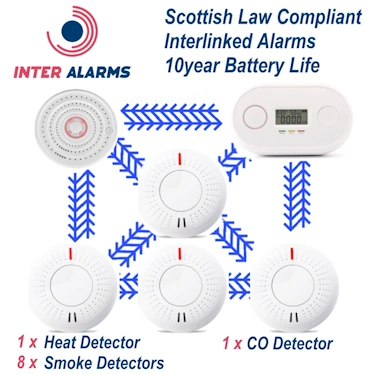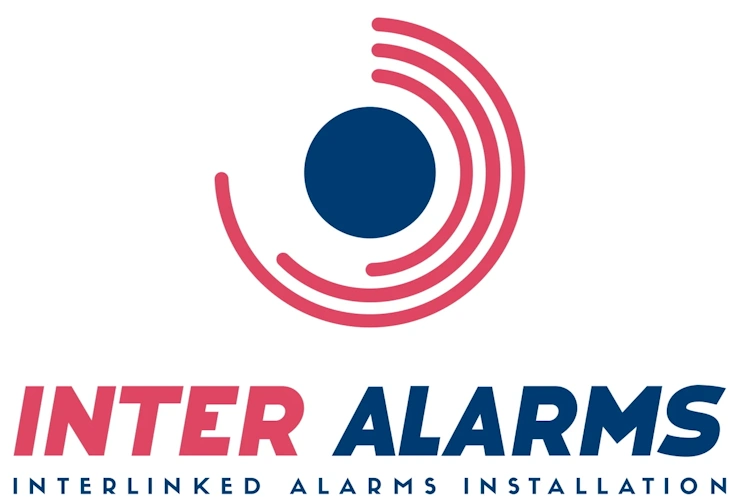Introduction
In Scotland, new regulations have been introduced to enhance the safety of homes by mandating the installation of interlinked smoke and heat alarms. This blog post will guide you through the specific requirements, the types of alarms needed, and tips for installation and maintenance.
Why Are Smoke and Heat Detectors Important?
Smoke and heat detectors are essential for early detection of fires, providing critical time to evacuate and call emergency services. Interlinked alarms ensure that when one alarm detects danger, all alarms in the home will sound, increasing the chances of alerting everyone in the house.
Legal Requirements in Scotland
As of February 2022, every home in Scotland must have:
- One smoke alarm in the living room or the room you use most.
- One smoke alarm in every hallway and landing.
- One heat alarm in the kitchen.
All alarms must be interlinked, meaning if one goes off, they all go off. Additionally, if you have any carbon-fuelled appliances, you must also have a carbon monoxide detector in the same room, though it does not need to be interlinked with the smoke and heat alarms.
Types of Smoke and Heat Detectors
There are various types of smoke and heat detectors available, each with its own advantages:
Ionisation Smoke Alarms
These are good at detecting fast-flaming fires. They are generally more responsive to fires that produce little visible smoke.
Optical Smoke Alarms
Also known as photoelectric alarms, these are better at detecting slow-burning fires that produce a lot of smoke.
Heat Alarms
These alarms are designed to detect increases in temperature and are typically used in kitchens where smoke alarms might be prone to false alarms.
Installation Tips
Proper installation is key to ensuring your smoke and heat detectors function correctly:
- Follow the manufacturer's instructions for installation.
- Place smoke alarms on the ceiling, ideally in the center of the room.
- Heat alarms should be installed in the kitchen, away from cooking appliances to avoid false alarms.
- Ensure all alarms are interlinked either wirelessly or through hardwiring.
Maintenance and Testing
Regular maintenance and testing of your alarms are crucial:
- Test your alarms weekly by pressing the test button.
- Replace batteries at least once a year, or as recommended by the manufacturer.
- Clean your alarms regularly to remove dust and debris.
- Replace any alarms that are over 10 years old.
Special Considerations
If you have special needs, such as being deaf or hard of hearing, there are specialized alarms available that include features like vibrating pads and flashing lights to ensure you are alerted in case of an emergency.
Conclusion
Ensuring your home is equipped with the right smoke and heat detectors is not only a legal requirement in Scotland but also a crucial step in protecting your home and loved ones from the dangers of fire. By following the guidelines and tips provided in this post, you can enhance the safety of your home and ensure compliance with the latest regulations.
